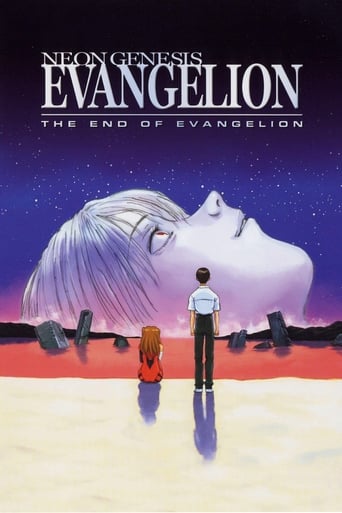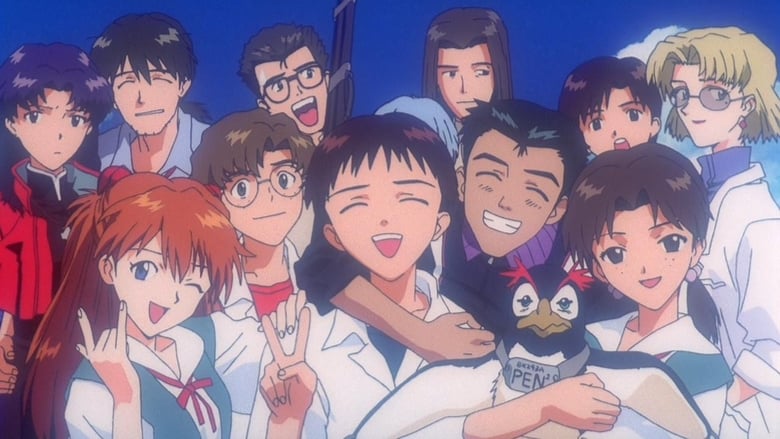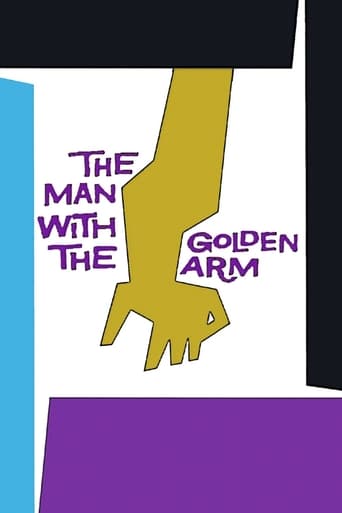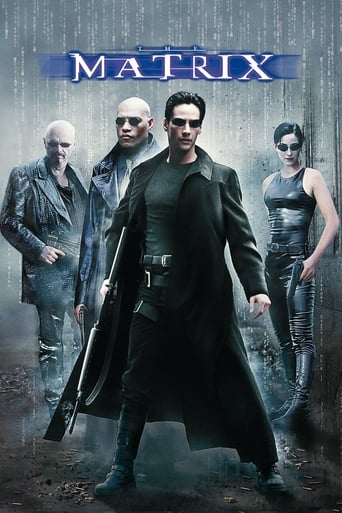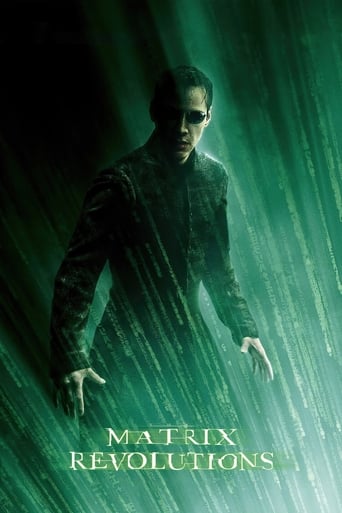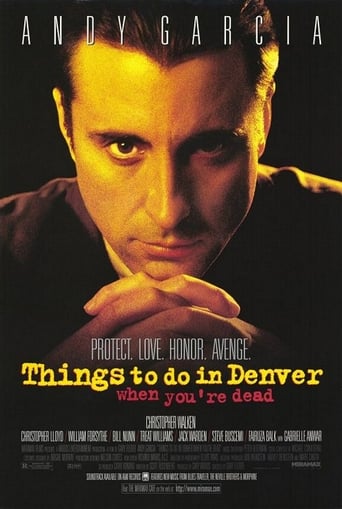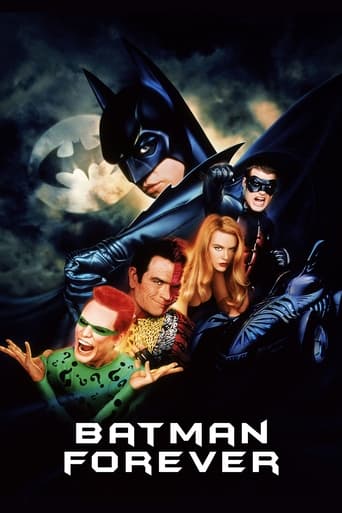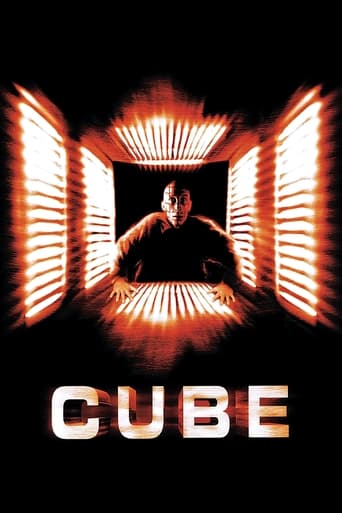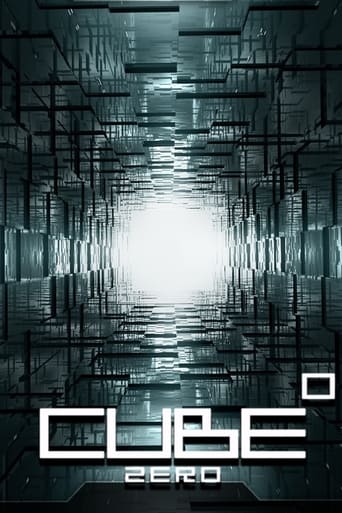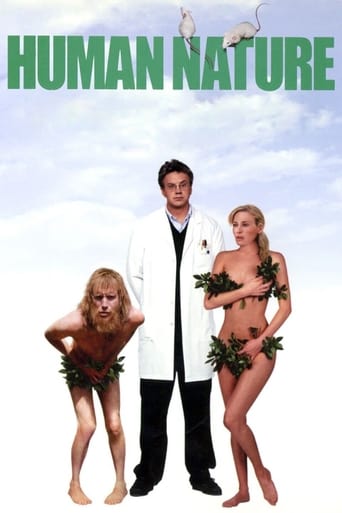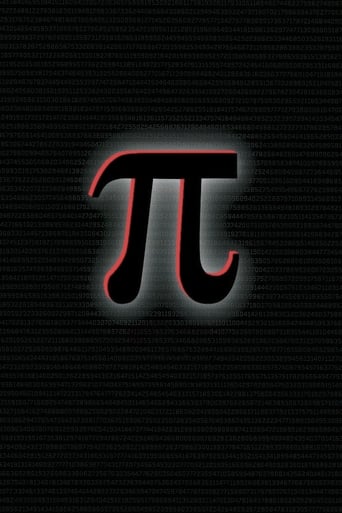Neon Genesis Evangelion: The End of Evangelion (2024)
Seele orders an all-out attack on NERV, aiming to destroy the Evas before Gendo can trigger Third Impact and Instrumentality under his control.
Watch Trailer
Cast
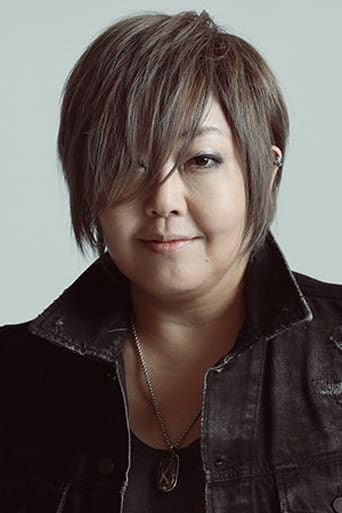
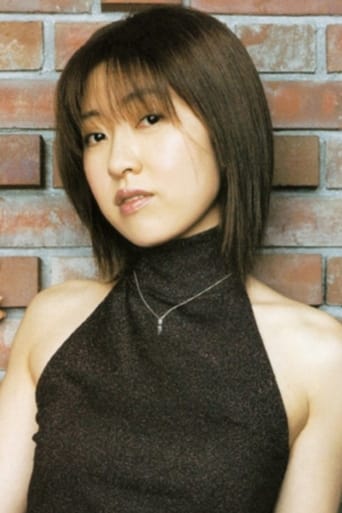


Similar titles
Reviews
Simply A Masterpiece
Awesome Movie
A lot of perfectly good film show their cards early, establish a unique premise and let the audience explore a topic at a leisurely pace, without much in terms of surprise. this film is not one of those films.
A terrific literary drama and character piece that shows how the process of creating art can be seen differently by those doing it and those looking at it from the outside.
Watching anime has always carried with it a social stigma: it is something for geeks, manchildren and perverts, not well-adjusted individuals. Of course there is the family-friendly, largely accepted anime of Hayao Miyazaki, and the teen-oriented action shows like Fullmetal Alchemist or Naruto, which are widely regarded as acceptable for the mainstream. But beyond that anime has a lot of unfortunate, 'problematic' tendencies. Anime idolizes cutesy and innocent girls in a sexual way, and in general treats women as sex objects, it has nonsensical, zany humor that seems infantile or incomprehensible to those encountering it for the first time, it is violent and graphic and often carries no 'message' for the audience, no lesson about inclusivity and solidarity. Anime fans also tend to get obsessed about anime. It seems to be addictive by its nature, drawing audiences in fantasy fulfillment and escapism, making them neglect 'real life' duties. Otaku culture is a big problem in Japan and is shunned by many anime creators, notably by Miyazaki himself.Which brings me to Neon Genesis Evangelion. Evangelion is often hailed as a deconstruction of the mecha anime genre, in this context meaning that it took a popular anime genre and did something different with it, examined how it worked and what made it tick, took it apart and assembled the parts into something new. Evangelion gained a rabid following and merchandise relating to the show is still super popular 20 years after it was on air. This is largely because the anime introduced popular female characters that otakus love to moon over: Rei and Asuka. Both of these characters, one mysterious and submissive and the other so-called 'tsundere' meaning she's willful and antagonistic but still in love with the protagonist, are endlessly copied in other anime. (Asuka's character is partly based on the title character in Nadia, an earlier anime by Hideaki Anno.) Neon Genesis Evangelion the TV show ran out of funds before its conclusion, forcing its creator Anno to come up with two ending episodes that infamously feature hardly any animation and are ambiguous and introspective. A few years later this feature film was produced to make up for the ending: The End of Evangelion. I expect that fans of the show were waiting for it excitedly - they were finally going to know for sure what actually happened to their beloved characters. But as the psychological and surrealistic undertones of the TV show hinted, this was a story that was less about the 'what actually happened' and more about the expectations of the audience, subversion of genre and introspection, and the feature movie The End of Evangelion was no exception.The End of Evangelion does tell the story - the literal story, not just what happened in protagonist Shinji's head. But the story might not be to the liking of fans. I don't know if Hideaki Anno purposefully wanted to insult his otaku audience and mock the entire anime culture, but it sure seems like it. The movie begins with Shinji masturbating to a comatose Asuka, a clear message on how disgusting it is to project sexual fantasies on a character that represents a vulnerable 14-year-old girl. The movie kills off every single one of the female characters that otakus love, and it does it in very frustrating ways. One survives a 12-against-1 battle only to find out that the enemies are actually undefeatable and the whole battle was a waste of time. She is eaten alive. One is blown to bits, another is shot offscreen, some are turned into orange jelly (though fans will be quick to point out that this represented only the death of their bodies, not their souls), and one grows into an alien giantess before decomposing and falling apart, her gargantuan pieces littering the landscape. And it also turns out that she was actually a clone of the protagonist's mother. (This we already knew from the TV show so it's not like we came into the movie expecting it to be another run-of-the-mill teen action adventure.) It is a brave endeavor, one that doesn't really care about what people think, concerned only with the vision of its creator. It's relentless, merciless and uncompromising. It makes no concessions - it doesn't even feature the iconic theme song of the TV show. And above all it is beautiful. It is animated smoothly, the giant robots move with the weight they deserve, the colors and compositions are expertly crafted and there are many images that will stay with you in your daydreams and nightmares and that you will come across on the Internet message boards several times. The voice actors do a chillingly good job - the shrieks are so horrible that I don't know if I ever heard anything as moving in any horror movie. I haven't seen the English dub so I can't comment on its quality.The End of Evangelion is a robot action movie, and a good one, and it is a psychological movie, and a horror movie, and a science fiction movie, but it is also more than that. It manages to also be a commentary on anime itself, the state of the industry and the culture surrounding it. But it is also a look into the mind of the individual. At its heart it concentrates on why people do these things, why we become obsessed, alienated, violent, and the answers are found in the mechanics of the mind, and The End of Evangelion shines a light into the dark reaches of the human psyche.
Neon Genesis Evangelion is the greatest television show ever made, so it's only fitting that it's concluded by one of the greatest films ever made.The complex, intertwining character arcs of the original series collide in a beautiful, apocalyptic nightmare. A nightmare which visually conveys the internal conflict of our main protagonist, Shinji Ikari, in manner that is anything but clear at face value. With haunting imagery and piercing, impacting sound work, this film is a cinematic treat to behold. If you enjoy the weirder sides of films, then this is definitely for you.The lack of a succinct, storybook ending allows for a lot of analysis so even months (or years) later you'll still be thinking of it.I love it, and feel no review (especially one of this size) can do it justice. Watch it (after the show) and if it doesn't work for you, then that's fine. However, if it does, I can promise you it will become one of your favorite films of all time.
The End of Evangelion, an alternate ending to the anime series Neon Genesis Evangelion may come across as pretentious, but it perfectly captures realistic emotions with symbolic ambiguity and philosophical themes. This anime is a deconstruction of the mecha genre. That is, tropes and clichés of that genre are taken apart. In the case of End of Evangelion or Neon Genesis Evangelion, unlike a typical protagonist in a mecha series, who is brave and willing to fight in any situation, Shinji, the protagonist of Neon Genesis Evangelion is wimpy and apathetic to his task, which is a realistic reaction of most teenagers faced with a similar situation. While some dislike the emotional realism and are just looking for a feel-good story, I enjoy it because it gives a better understanding of the genre as a whole. Most of the key scenes are purposely ambiguous and littered with symbolisms or hints that point to possible answers. Honestly, I'm not good at catching symbols and analyzing, but the part of the fun in watching Neon Genesis Evangelion is trying to reach a conclusion or researching what other viewers have concluded. The infamous last line of the movie can be interpreted as "I feel sick" or "how disgusting" because of the ambiguous nature of the language, and I have yet to see a logical conclusion or reach a conclusion myself. The philosophical themes add to the psychological nature of the story, which is quite open for interpretation. I see the series as an argument against hedonism, which is the philosophy that the goal in life is to maximize pleasure and minimize pain. However, we see that Shiji chooses a world where there are both happiness and suffering instead of a world with everlasting happiness. The question that this film answers is: "would we perceive a world where there are only endless 'ups' as real and fulfilling?" Perhaps this film reveals what true happiness is. The End of Evangelion may seem like a dime-a-dozen, action mecha anime at first, but that is just a facade. This series requires heavy thinking and the pursuit of truth, whatever that may be, if it exists at all.
Warning: spoilers in the second to last paragraph of this review the rest is spoiler free.In 1995 Neon Genesis Evangelion aired on television for the first time, and it immediately became one of the most popular animes of all time, As the the show went on it became more and more controversial with each passing episode, because the show started out as an action anime with a deep and complex plot, but towards the end the show started to become detached from reality and became a sort of surrealist existential show about what it means to exist. The shows massive change in style left many viewers unsatisfied with the ending, especially the last two episodes, which contain some of the most insane stuff you will ever see in your whole life. So in 1998 the directors of the show, Hideaki Anno and Kazuya Tsurumaki, released an alternate film ending for the show, and that Film was Neon Genesis Evangelion: The End of Evangelion.Before anyone asks, yes, you need to watch the anime before you can even think about trying to watch The End of Evangelion, and I know this is going to be a controversial statement, but the show is good enough that even if you didn't need to watch in preparation for The End of Evangelion, you should still watch it just because of how great it is, Neon Genesis Evangelion is one of the most creative and experimental shows of all time. The show/film is about an insecure Japanese teenager, Shinji, who is asked to become a pilot of a giant mech suit, when the city is acted by strange creatures nicknamed "angels." Shinji's distant father is the leader of the government operation know as NERV, which controls the Eva's, (or the giant mech suits). There are two other kids who also pilot Eva's, both of them girls, that Shinji has a hard time getting along with. As the show goes on it becomes clearer that it is not about some alien invasion, but a character study of Shinji, and more importantly about his purpose in this life. End of Evangelion, continues from where the third to last episode left off. (Well actually it's tough to tell if it's a continuation of the last two episodes or a complete replacement.) I should say that I'm not going to be talking about the plot of the film, because it would be impossible to do so without spoiling Neon Genesis Evangelion. But, in order to try and satisfy all of the shows fans, the film attempts to blend the insane, intense action of the first half of the show, with the surrealism of the second half of the show. Did I say attempts? I meant flawlessly, it flawlessly blends the action of the first half, with the surrealism of the second half.It's animation perfectly matches the story, insane, beautiful, layered, and unforgettable. There are so many memorable images from The End of Evangelion. The last time I saw a film that had so many creative visuals, would have probably been The Holy Mountain, or 2001: A Space Odyssey. Actually End of Evangelion shares a lot with both of those films, the one major difference would be that End of Evangelion focuses on a single boy, while those other films tell much more broader stories. Evangelion tells the story of Shinji his experiences, his struggles, his weaknesses, and most importantly his purpose. At the end of the day that really is what the Evangelion series is all about purpose. Shinji has been struggling with the reason for his existence ever since the beginning of the show. Before the show began he thought he had no purpose, but when he was recruited by NERV he suddenly had a purpose, so he then thinks that he exists solely to pilot the Eva, and without the Eva, there would be no need for him. This creates a sort of symbiotic relationship between Shinji and the Eva, (because the Eva needs him to pilot it after all). Warning next paragraph contains spoilers.The ending is one of the most heavily debated endings of all time, Shinji and Asuka are lying on a beach somewhere after they have separated from the rest of humanity. Shinji then sees Rei floating in the distance, Shinji tries to strangle Asuka, but eventually stops, Asuka then says them that changes depending on what version you saw, it could have been "How disgusting," or "what a disgustingfeeling," or "I feel sick," depending on which version you saw. The film then cuts to black and ends, leaving people everywhere trying to decipher the cryptic ending. Here's what I think happened, Shinji had separated from the rest of humanity, but after he did that he realized how much he missed everyone, symbolized by Rei appearance in the distance. Shinji longed to bewith someone else anyone else, even if it meant that he would be hurt, so Asuka appeared, (she was the one he really loved after all.) Shinji then tries to strangle her, because she hurt him. He then gives up because he never had the ability to kill humans. Think back to episode 18 where Shinji refuses to kill the infected Eva-03 unit because it might kill the pilot inside. Asuka then says her line, which basically just shows her complete disgust at how pathetic he is, remember how much Asuka hated Shinji self-loathing, how she made fun of him for always apologizing even when it wasn't his fault. Neon Genesis Evangelion: The End of Evangelion, is as beautiful as it is mysterious, the film is one of the ones that just causes your mouth to drop when you see it for the first time, and every time after that.9.8/10

